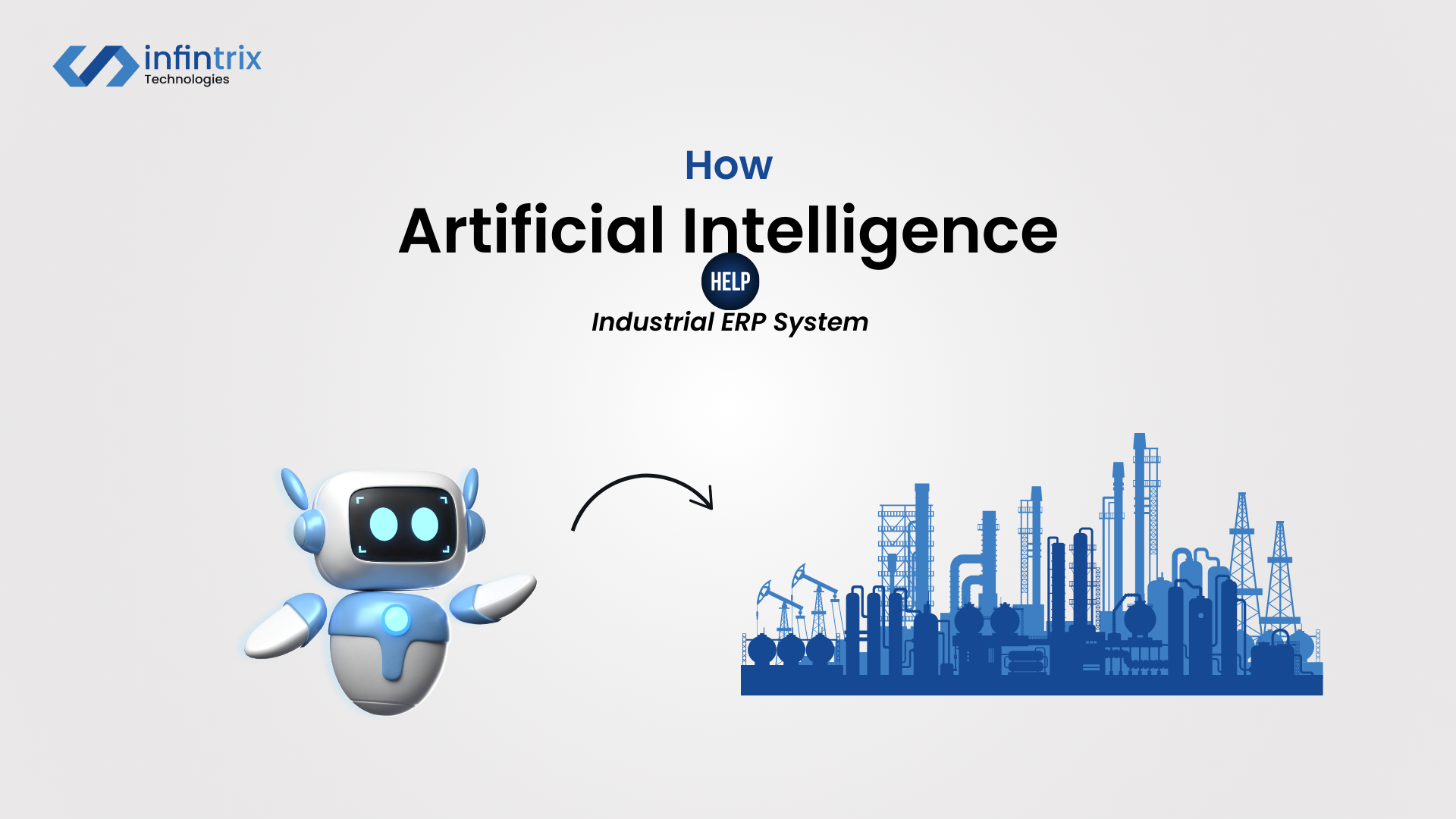In today’s fast-paced industrial world, companies are under constant pressure to innovate, improve productivity, and reduce costs. Traditional enterprise resource planning (ERP) systems have been key to managing business operations, but as industries evolve, so do their needs. This is where AI integration comes into play.
By incorporating Artificial intelligence (AI) into industrial ERP systems, companies can harness real-time data, automate processes, and make data-driven decisions faster and more accurately. This synergy between AI and ERP offers a transformative approach that not only boosts efficiency but also opens doors to innovation in operations, maintenance, and overall business strategy.
What is ERP?
Enterprise Resource Planning (ERP) systems are software platforms designed to integrate and manage core business processes. From inventory management to financial accounting and human resources, ERP systems provide a centralized solution for managing all the critical functions within an organization. These systems help streamline workflows, improve collaboration, and ensure that businesses can access real-time data to make informed decisions.
In industrial sectors, ERP systems play a crucial role in managing manufacturing, supply chain, procurement, and more. However, while ERP systems have been essential in automating tasks, the introduction of artificial intelligence into these platforms is bringing even greater efficiencies and capabilities to industries.
10 Benefits of AI Integration in Industrial ERP System
1. Improved Decision-Making with Predictive Analytics:
AI-powered industrial ERP systems can detect large sets of data and provide predictive insights, helping businesses anticipate future trends and make data-driven decisions. This capability empowers businesses to proactively manage inventory, optimize supply chains, and forecast demand accurately.
2. Automation of Routine Tasks:
AI can automate repetitive tasks such as data entry, invoice processing, and inventory management, reducing human errors and freeing up time for employees to focus on more strategic initiatives. This increases overall operational efficiency in industrial ERP systems.
3. Enhanced Maintenance Management:
AI enables predictive maintenance by analyzing equipment performance data in real-time. By predicting equipment failures before they occur, businesses can avoid costly downtimes and improve asset longevity, leading to better maintenance management in industrial ERP systems.
4. Optimized Supply Chain and Inventory Management:
AI integration helps optimize supply chain processes by predicting supply and demand fluctuations, optimizing inventory levels, and identifying potential bottlenecks. This reduces inventory costs and ensures timely deliveries, making ERP systems more agile and responsive.
5. Real-Time Data Analysis:
AI allows industrial ERP systems to process vast amounts of data from sensors, machines, and external sources in real-time. This enables businesses to make faster, informed decisions, providing a significant competitive edge in industries where speed and accuracy are crucial.
6. Enhanced Customer Experience:
AI-driven ERP systems can offer insights into customer preferences, purchasing behaviors, and service feedback. This enables businesses to tailor their offerings, improving customer satisfaction and loyalty through more personalized products and services.
7. Improved Quality Control:
AI can enhance quality control processes by using machine learning algorithms to detect defects and inconsistencies during production. By identifying potential quality issues early, AI-powered ERP systems help improve product quality and reduce waste.
8. Cost Reduction:
AI-powered automation and optimization can significantly reduce operational costs in areas like production, inventory management, and procurement. By streamlining processes and minimizing errors, businesses can achieve cost savings and better resource allocation within their ERP systems.
9. Advanced Reporting and Insights:
AI allows ERP systems to generate more advanced reports with insights drawn from various data sources. It can quickly process historical data to provide real-time reports, helping managers understand trends, identify anomalies, and take corrective actions promptly.
10. Increased Flexibility and Scalability:
With AI integration, industrial ERP systems become more flexible and scalable. Businesses can easily adapt to changing demands, new market conditions, or technological advancements, allowing them to scale operations efficiently as they grow.
Conclusion:
Incorporating AI into industrial ERP systems is not just a trend but a vital shift in how businesses can operate more effectively.
At Infintrix Technologies, we specialize in offering AI-powered ERP services that help businesses harness the full potential of AI integration. From predictive maintenance to real-time data analysis, our ERP solutions are designed to streamline processes, enhance decision-making, reduce costs, and improve

